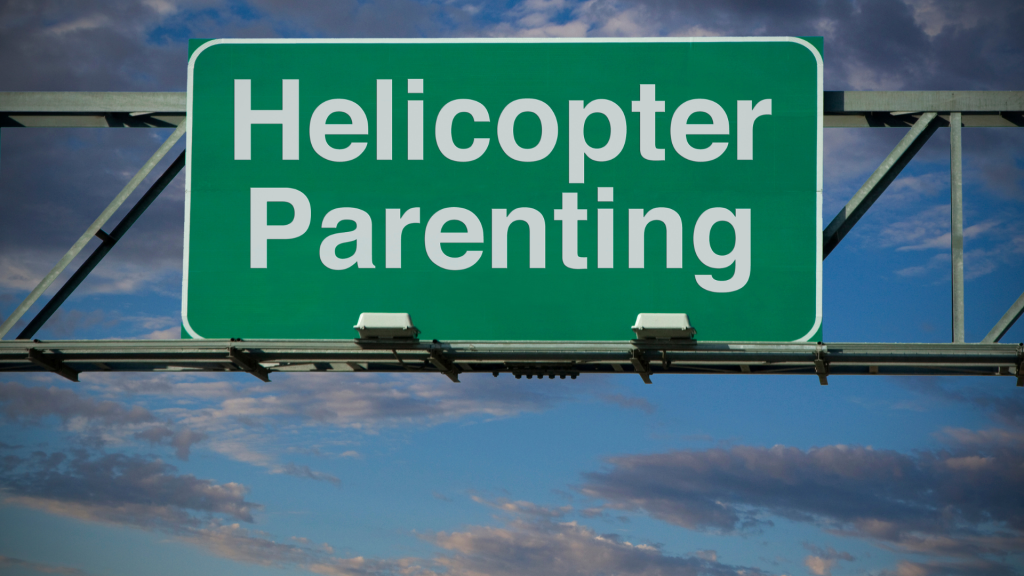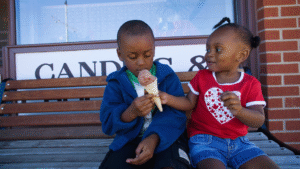Helicopter parenting has become a trend in recent years. While the goal of helicopter parenting is to provide perfect parenting for our children, it can have adverse effects on their development. In this blog post, we will discuss the different types of helicopter parenting and their impact on children.
What is a Helicopter Parent?
Parenting styles can vary significantly from family to family and even between parenting eras. What might be considered normal parenting in one era might be regarded as extreme helicopter parenting in another. But whatever the style, some general characteristics of Helicopter Parenting are common and worrying.
Helicopter Parenting is a term used to describe parents who constantly hover over their children, micromanaging every detail of their lives. This often includes monitoring everything their children do online, in school, at home, and anywhere else they may be. It can also include constant surveillance of the child’s health and well-being, frequently checking in to ensure they’re okay.
This type of intense parenting can have many negative effects on the child. It can make them feel overwhelmed and controlled, anxiety-ridden, and stressed out. It can also lead to problems with self-confidence and self-esteem and decreased socialization skills. In extreme cases, it can stunt the child’s identity and creativity development.
While Helicopter Parenting is not necessarily wrong per se, it is often seen as overly protective and smothering by the child’s peers. This parenting style is only appropriate for some children. It should only be employed when necessary to ensure optimum well-being for the child.
What Are The Effects Of Helicopter Parenting On Children?
Helicopter Parenting is characterized by extremely high levels of supervision and control. This type of parenting has been shown to have adverse effects on children, such as causing them to feel overprotected and decreasing academic achievement. The benefits of helicopter parenting are often exaggerated, with some parents claiming that it produces perfect children who never make mistakes. However, research shows that helicopter parenting negatively affects children’s development.
A study published in the journal “Child Development” found that children raised under parental helicopter conditions are more likely to experience problems such as anxiety and depression. They also tend to have lower self-esteem and less confidence than their peers who were not raised under parental helicopter conditions.
One of the main reasons why helicopter parenting harms children is because it creates a sense of dependency-children who are constantly supervised and controlled become dependent on the adults in their life for validation and approval. As a result, they may be less able to form independent relationships later in life. Additionally, helicopter parents often rely too much on external rewards instead of developing intrinsic motivation in their children. This can lead to children becoming lazy and uninspiring learners because they need to be challenged sufficiently.
Overall, Helicopter Parenting is an ineffective way to raise kids and should be avoided if possible. Instead, parents should provide adequate amounts of autonomy and responsibility while still providing enough guidance and support so that their children can learn how to handle difficult situations on their
How Can Helicopter Parents Change Their Ways?
Helicopter parents hover over their children and micromanage their lives. This can harm the child’s development. Here are five ways to change our helicopter parenting ways:
- Let a child make some mistakes.
- Give them space to explore and figure things out for themselves.
- Encourage independent thinking and creativity.
- Respect their autonomy and independence.
- Set boundaries concerning appropriate behavior and what is not, and stick to them!
How To Break The Cycle
Parenting can be a very challenging and rewarding experience. Still, it can also be a cycle of over-involvement that can have negative consequences. Helicopter Parent is constantly hovering over their children and micromanaging their lives. This parenting style can create an environment where children feel overwhelmed and unable to cope with life independently.
Parents need to set limits and provide encouragement. Still, they should also take steps to break the cycle of over-involvement. One way to do this is to establish clear boundaries with our children. Ensure they know what is acceptable behavior and what isn’t, and enforce these guidelines consistently. Let them know we are there to help them when they need it but don’t hover over them all the time.
Another way to break the cycle of helicopter parenting is to develop a positive relationship with our child. Spend time together and talk about things that interest them. This will help build a strong foundation for their future relationships as adults. Finally, make sure we schedule time daily to recharge and focus on our own needs instead of our children’s.
Ground Off the Choppers and Let Kids be Kids
As parents, it is our responsibility to do everything in our power to ensure our children grow up happy and healthy. However, sometimes we must work on what we think is necessary to create the perfect environment for them. The Helicopter Parent excessively monitors their children’s every move and insists on total control over their lives. This can be incredibly damaging to the children and their relationships with their family members.
If we find ourselves hovering over our children or constantly interfering in their life, try to take a step back and allow them some independence. There are plenty of amazing things out there waiting for them if they take the time to explore them.





